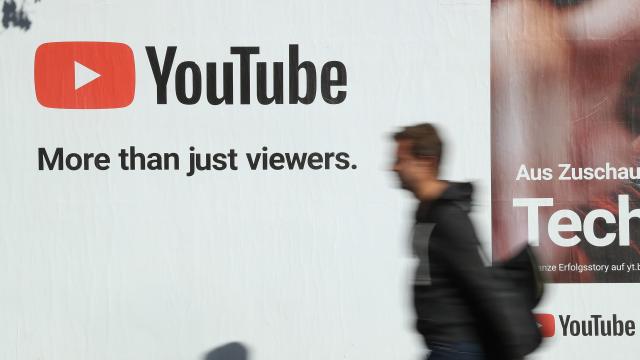YouTube’s copyright protection system is kind of a mess. YouTube places much of the burden on content creators to dispute copyright claims, while rights holders can slap strikes or even seize revenue generated by videos after filing a claim, often before the YouTuber even has a chance to respond.
However, after pushback from content creators, YouTube published a new blog post highlighting changes to its Content ID policy that could cut down on the trend “aggressive” copyright claims.
Starting in mid-September, YouTube will “forbid copyright owners from using our Manual Claiming tool to monetise creator videos with very short or unintentional uses of music”.
In other words, rights holders and music labels won’t be able to seize money made from a particular video just by filing a copyright claim, particularly in cases where copyrighted content (typically music) only appears briefly or in the background of a video.
However, while this policy update means rights holders will no longer be able to claim revenue from other people’s videos, YouTube says that creators should keep in mind that “including someone else’s content without permission — regardless of how short the clip is — means your video can still be claimed and copyright owners will still be able to prevent monetisation or block the video from being viewed.”
[referenced url=”https://gizmodo.com.au/2019/08/youtubes-moderators-say-it-isnt-your-imagination-popular-creators-do-get-away-with-more/” thumb=”https://i.kinja-img.com/gawker-media/image/upload/t_ku-large/nxsafexaxfnqjbi58tqb.jpg” title=”YouTube’s Moderators Say It Isn’t Your Imagination: Popular Creators Do Get Away With More” excerpt=”Content creators have a lot of complaints about YouTube, but one you’ll hear most often is how the platform seems to give its high-profile accounts more leniency when it comes to content moderation. But there’s a simple explanation for this: That’s because it does, according to nearly a dozen YouTube moderators interviewed in a Washington Post report released this week.”]
The idea behind the change is that by removing the monetary incentive for rights holders to submit copyright claims, YouTube hopes some copyright holders will choose to ignore short or unintentional copyright infringements, thereby reducing the impact that a copyright claim can have on a YouTuber’s revenue or channel.
It would also, theoretically, reduce the administrative headaches that YouTube has to deal with sorting through the claims.
It’s also important to note that this policy change only pertains to copyright claims submitted manually by rights holders, and not claims generated YouTube’s Content ID match system, which uses AI and machine learning to automatically detect potential cases of copyright infringement.
Still, YouTube’s latest policy update could be seen as a small win for content creators such as Mr Beast, who claims he lost more than $US10,000 ($14,749) for simply repeating a line from Bon Jovi song.
And while this change doesn’t completely solve all of YouTube’s issue surrounding copyright claims, at least things seem to be going in the right direction.
